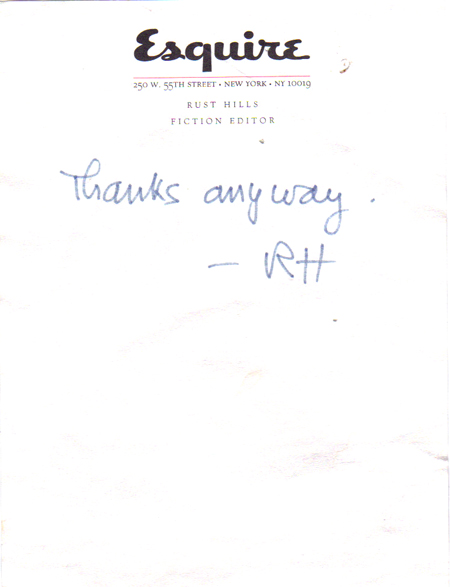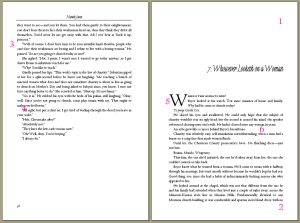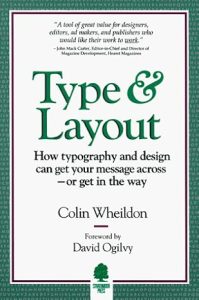Do the Math
by Philip B. Persinger
published by iUniverse
I read a review of this book that pissed me off, but the blurb looked interesting and so I went forth to iUniverse (yes, it’s independently published) to purchase the ebook. I will spare you the nightmare of actually getting the book, but iUniverse? Bite me. Fortunately, the author came through for me when I copied him on my bitchmail to iUniverse (which they still haven’t responded to). Anyway, he got me a print copy of his book posthaste and so I was a fan on that basis alone.
Here’s the blurb:
What could be worse than losing the love of your life? Getting her back!
William Teale is a brilliant professor of mathematics. His theory of inevitability posits that any human action, no matter how insignificant, might result in a disproportionately huge calamity.
His wife, Virginia “Faye” Warner, is a world-famous romance novelist who specializes in reuniting soul mates after a tragic and prolonged separation. According to her math, “one past and two hearts plus one love equals four-ever.” The Teale-Warner marriage is a thing of geometric and artistic perfection, a melding of the heart and the brain-amour and algebra.
But when Faye’s ghostwriter suffers a nervous breakdown and shakes all the arrows out of Cupid’s quiver, Faye reintroduces her husband to love. Unfortunately, it’s not with herself, but with the woman William had loved and lost years ago. Love is about to clash with inevitability, and it’s unclear which will emerge victorious.
Told in the off-beat voice of William’s graduate intern, Roger, Do the Math reveals the curious relationship between logic and love and the delightful consequences of taking a chance.
Only one bad point and it’s technical: The funky paragraph breaks in dialog. Oh, I don’t mean the looooong monologues that have to be broken, but, for example:
“Her home away from home,” he answered. “Room 407. New Coventry Medical Center. Only the best.”
“By the way,” he added as he picked up Claire’s drink and toasted me with it. “You did very well tonight, Roger.”
That unnecessary split happened enough that it was annoying, but certainly not enough to diminish the overall fantasticity of this novel. If you ever needed a posterbook for the validity of self-publishing, this is it.
And one aside, which I don’t know if it was tongue-in-cheek or not. A vague reference is made to the movie Poltergeist, but the story is set in 1978 and that movie didn’t come out until 1982. I could see how that could go either way, so I’m giving the author the benefit of the doubt.
This is the story of 50-year-old professor of mathematics William Teale and Virginia, his romance-novel-writer wife and Claire, Teale’s lost love from 25 years ago. It’s told from the point of view of his 25-year-old intern, Roger, in first person. And oh, it takes place in 1978. Did I say that already?
This book’s kinda sorta billed as a romance. I think. I’m not really sure. And I don’t really know what it is anyway except hilarious. I know it’s supposed to be poignant and bittersweet. I know it’s supposed to be about Teale’s relationship with his wife and his lost love. Really, I do know that.
But what you have to know going in is that I have an eccentric sense of humor and a wee bit of a crush on higher math. Can’t add or subtract without a calculator (multiplication and long division are simply out of the question) and I really just don’t care for discrete math much, but after some struggle and time, I’m a fair hand at simpler calculus. It’s like the bad boy you just want to take home and try to tame.
Okay, so what that’s got to do with the price of tea in China is this: If you don’t get the math jokes, it’s okay. It’s still funny. If you do, it’s ROFLMAO funny. The author conflates mathematics and romance in such a bizarre way I can’t help but chortle just thinking about it. For instance, Teale tries to figure out what to do about his problem using set theory in a discussion with Roger:
“It’s about balancing the quality of the empty set against one with two elements,” I started out. “That just doesn’t make sense.”
“No, it doesn’t,” he said.
Relieved by that concession, I followed up.
“Then how can a set of two elements be qualitatively equivalent to an empty set?”
He smiled wearily. “Unexplored territory, isn’t it?”
He thought a moment longer. “It’s the wasteland,” he said. “We understand the null set. There’s nothing there. But a set of two elements which has no connection, or, if connected, no contiguousness, that is, ultimately a set that is in and of itself empty, isn’t it?”
In other words, using set theory, Teale equates his relationship with his wife (two elements in one set that are disconnected) to a set with nothing in it.
All the little oddball characters that populate a college campus/faculty/town are fondly drawn and you can immediately find the equivalents of these people in the memories of your own college experience. All the subplots come together nicely in one tight, tidy little knot at the end (although I’ll admit I knew where one of them was going on page 23, and sure enough).
Now, about that “romance novels are just a formula” business: That is repeated ad nauseam throughout the tale, but funny enough, even though they spend valuable computer time (vacuum tubes! keypunch cards!) trying to figure it out, they read from a how-to-write-romance manual and follow it strictly, and yet…they never manage to figure it out, disproving their own premise that there’s a real formula to it.
I had no problem with this facet for three reasons: (1) Though all the characters (including the romance novel writer and her ghostwriter) think this, it doesn’t seem to be thought of as a bad thing; it’s simply a fact of their life and needs to be adhered to as any other product specification, as they’re up against a deadline, and (2) This is set in 1978, remember. The specifications outlined are, to the best of my recollection, exactly how romances were written in the late ’70s, so I can’t really go throwing stones at fact (or at least my perception of fact), and (3) For all the “formula” talk, it was still respectful of the genre and its fans.
Some passages that made me howl (and wake up the Tax Deducations) got their pages dog-eared. (The horrors!) Examples (although I must warn you that my sense of humor is a bit, ah, weird, and these are somewhat out of context so they might not translate):
[Sample from a technical writer for a nuclear reactor handbook applying for the job of a romance novelist ghostwriter]:
“…pump type can be determined by identifying flange at top of housing. Inductive cooling pump has a rigid pressure release vent hanging down perpendicularly on flange centerline. Whereas action release coil pump is unique because of the two nipples protruding from either side directly above the emergency bleed valve.”
and
“A warning. The manifold might be hot. Use caution when sliding the spanner between the opened blades, as there is a danger of electrical arcing… It might be necessary to remove the probe from the main sheath and reinsert with proper lubrication… If vibration continues, apply appropriate torque to the uppermost junction point until release is achieved…”
[Romance novelist] closed the booklet with a rude snap.
“There has been a terrible misunderstanding here.”
“I’m sorry?” said Claire.
“This seems so–how should I put it? Technical.”
Even though it is in no real way similar, it vaguely reminded me of Neal Stephenson’s The Big U. Loved the premise, loved the voice, loved the characters and the humor is dry enough to make you beg for water.
And, oh, the author didn’t assume the reader would be 5 and need everything explained.



 Zoe is an independent publisher I “met” by happenstance when I got soundly thrashed on Dear Author for suggesting that a multi-published author whose 3-book SERIES contract had been canceled after book 2 (leaving her fans out in the cold with characters they loved) actually self-publish the third book in the series (you know, since her rights had reverted back to her and she already has a fan base salivating for it). Good gravy, you’d’a thunk I’d said the Rapture was coming tomorrow and they’d all be left behind and have 666 burned into their foreheads bwahahahahaha burn in hell losers.
Zoe is an independent publisher I “met” by happenstance when I got soundly thrashed on Dear Author for suggesting that a multi-published author whose 3-book SERIES contract had been canceled after book 2 (leaving her fans out in the cold with characters they loved) actually self-publish the third book in the series (you know, since her rights had reverted back to her and she already has a fan base salivating for it). Good gravy, you’d’a thunk I’d said the Rapture was coming tomorrow and they’d all be left behind and have 666 burned into their foreheads bwahahahahaha burn in hell losers. I like the longer single-title contemporary romance (no suspense, thanks, and the category lengths are just way too short) and lately, the ones I really like have been coming out of the smaller e-presses. They’re not as well edited as I’d like, but they’re fun reads whose story lines seem to stick with me quite a while.
I like the longer single-title contemporary romance (no suspense, thanks, and the category lengths are just way too short) and lately, the ones I really like have been coming out of the smaller e-presses. They’re not as well edited as I’d like, but they’re fun reads whose story lines seem to stick with me quite a while.





 I’ve had a lot on my mind lately that I haven’t been able to untangle, much less unpack on an issue-by-issue basis. What are they?
I’ve had a lot on my mind lately that I haven’t been able to untangle, much less unpack on an issue-by-issue basis. What are they?